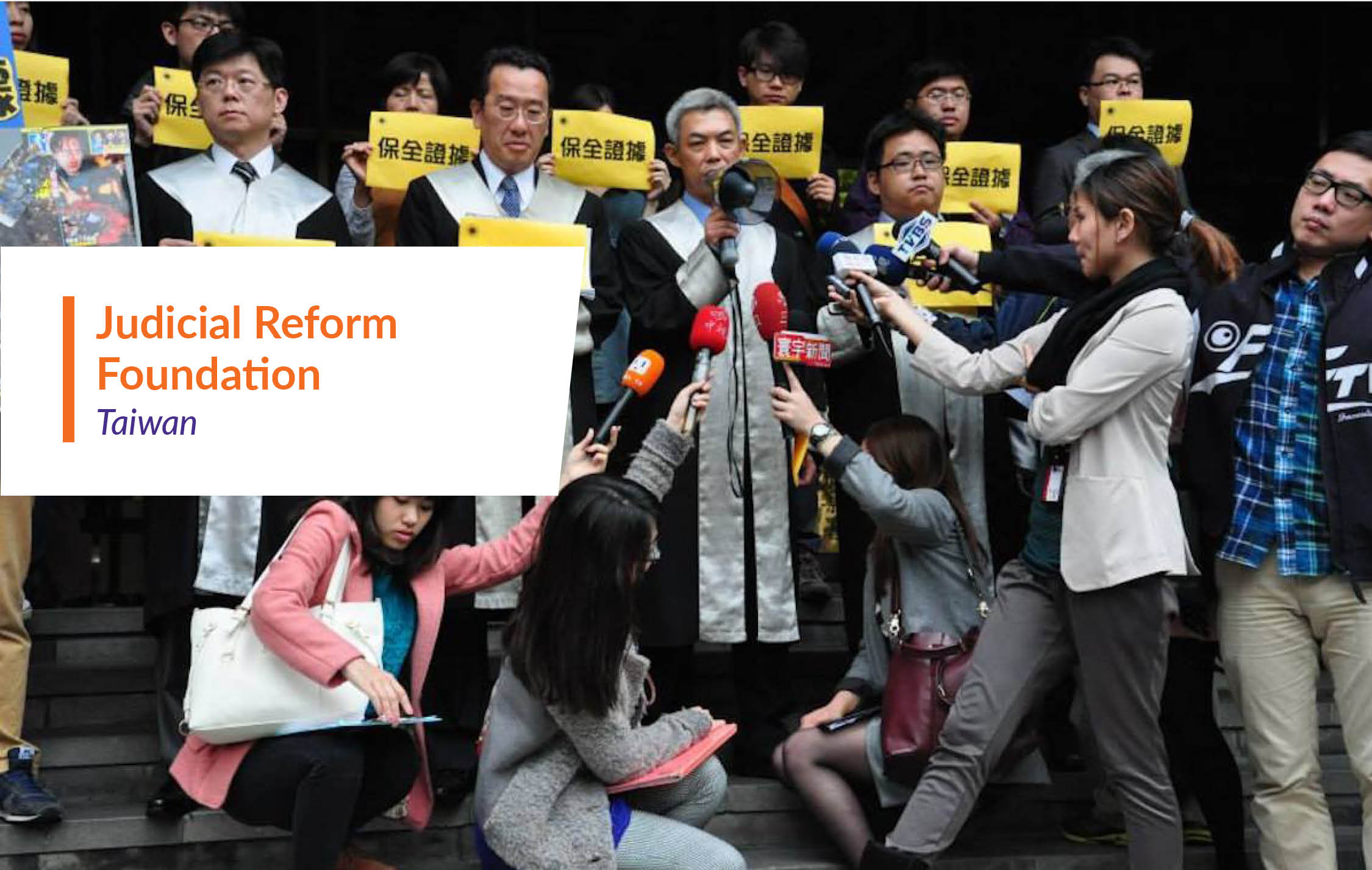Winner
Justice Institutions
Civic Participation
Judicial Reform
Transparency and Accountability
Share this
Contact information
www.jrf.org.tw/keywords/129
Facebook
Instagram
YouTube
LinkedIn

Legal Service for the Sunflower Movement: Protecting civil disobedience rights in Taiwan
The Problem
As progressive students and civic groups began the civil disobedience movement in protest of an unconstitutionally forced bill in 2014, they faced severe crackdowns by the government, including police brutality and subsequential SLAPPs (legal harassments known as Strategic Lawsuits Against Public Participation).
Subsequent crackdowns by the government, including disproportionate use of force by the police, raised questions about how to hold the government accountable for violence against the people and the path to seek justice and sustain truth via the institution of the rule of law.
The Approach
The day after the student protests began, Judicial Reform Foundation (JRF), a public interest lawyer organization in Taiwan, pro-actively assembled over 400 volunteer lawyers to provide pro bono legal services for arrested protesters. Among the many immediate legal aid taskforces JRF organized, it created a 24-hour lawyers' hotline, stationed pro bono lawyers at the peaceful occupation area to provide on-site legal services, and deployed volunteering observers to monitor police actions and prevent excessive force.
JRF further established a myriad of pro bono lawyers' initiatives in defending rights and seeking truth and justice for the demonstrators. For those who faced SLAPPs, JRF provided long term free legal representation which ended up vindicating more than 150 citizens. For those suffering police brutality, JRF summoned its expertise in law and in advocacy to hold the government and its officials accountable.
JRF’s services also extended to protesters involved in other social movements related to the Sunflower Movement throughout 2014 and 2015. In the ensuing years – for almost a decade – 432 lawyers represented 290 protesters in 10 civil and criminal cases, working to secure acquittals and compensation for victims. JRF’s legacy includes the prevention of excessive police force and advancements in Taiwan's rule of law and democracy.
The Impact
-
Nearly a decade of strategic litigations by JRF led to a landmark Supreme Court decision in 2021, the exercise of “the right to resist” or “civil disobedience” which was acknowledged for the first time in history to be a basis for precluding unlawfulness or reducing criminal liability. The favorable precedent creates an overarching institutional shield for democracy and rule of law.
-
JRF’s pro-active strategic litigations in holding the government and officials accountable is a win not only in the court of law but also in archiving truth in the people’s history.
-
JRF established a precedent in Taiwan High Court’s decision in 2022 that the police must adopt the least harmful measures in their actions to disperse protesters.
The Future
JRF continues to facilitate legal research, historical archive, and public education regarding the movement, which includes establishing a Litigation Database from Sunflower Movement cases and partner with media for digital and physical exhibitions. Internationally, JRF actively shares insights and strategies with CSOs around the world in terms of legal resistance and civil disobedience against authoritarian influences.